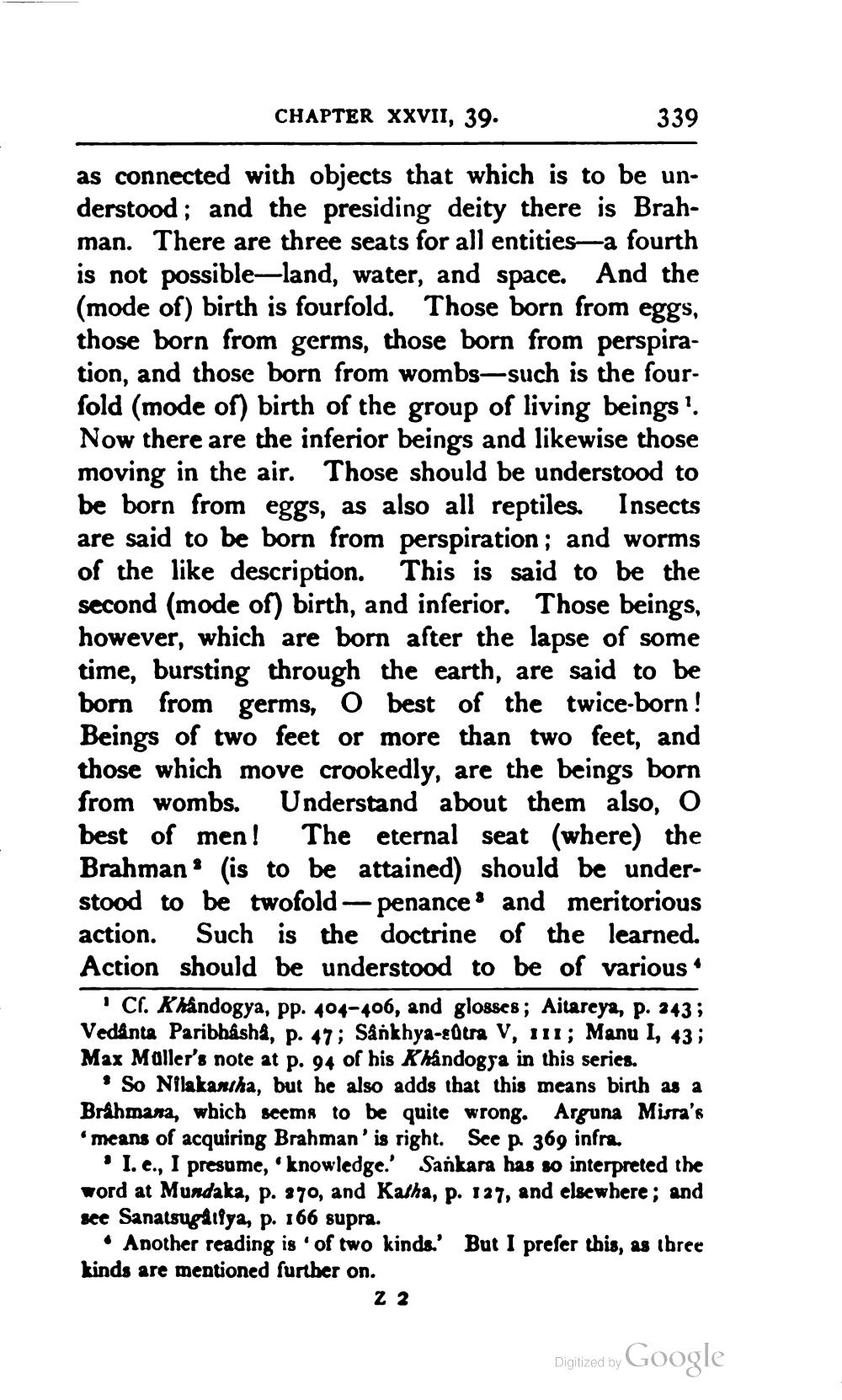________________
CHAPTER XXVII, 39.
339
as connected with objects that which is to be understood; and the presiding deity there is Brahman. There are three seats for all entities—a fourth is not possible-land, water, and space. And the (mode of) birth is fourfold. Those born from eggs, those born from germs, those born from perspiration, and those born from wombs-such is the fourfold (mode of) birth of the group of living beings! Now there are the inferior beings and likewise those moving in the air. Those should be understood to be born from eggs, as also all reptiles. Insects are said to be born from perspiration; and worms of the like description. This is said to be the second (mode of) birth, and inferior. Those beings, however, which are born after the lapse of some time, bursting through the earth, are said to be born from germs, O best of the twice-born! Beings of two feet or more than two feet, and those which move crookedly, are the beings born from wombs. Understand about them also, O best of men! The eternal seat (where) the Brahman (is to be attained) should be understood to be twofold - penance and meritorious action. Such is the doctrine of the learned. Action should be understood to be of various
Cr. Khåndogya, pp. 404-406, and glosscs; Aitareya, p. 343; Vedinta Paribhasha, p. 47; Sankhya-eOtra V, 111; Manu I, 43 ; Max Möller's note at p. 94 of his Khandogga in this series.
• So Nilakansha, but he also adds that this means birth as a Brihmara, which seems to be quite wrong. Arguna Misra's 'means of acquiring Brahman' is right. Sce p. 369 infra.
'I. e., I presume, knowledge.' Sankara has so interpreted the word at Mundaka, p. 370, and Katha, p. 127, and elsewhere; and see Sanatsugitiya, p. 166 supra.
• Another reading is of two kinds.' But I prefer this, as Ibree kinds are mentioned further on.
22
Digitized by Google




